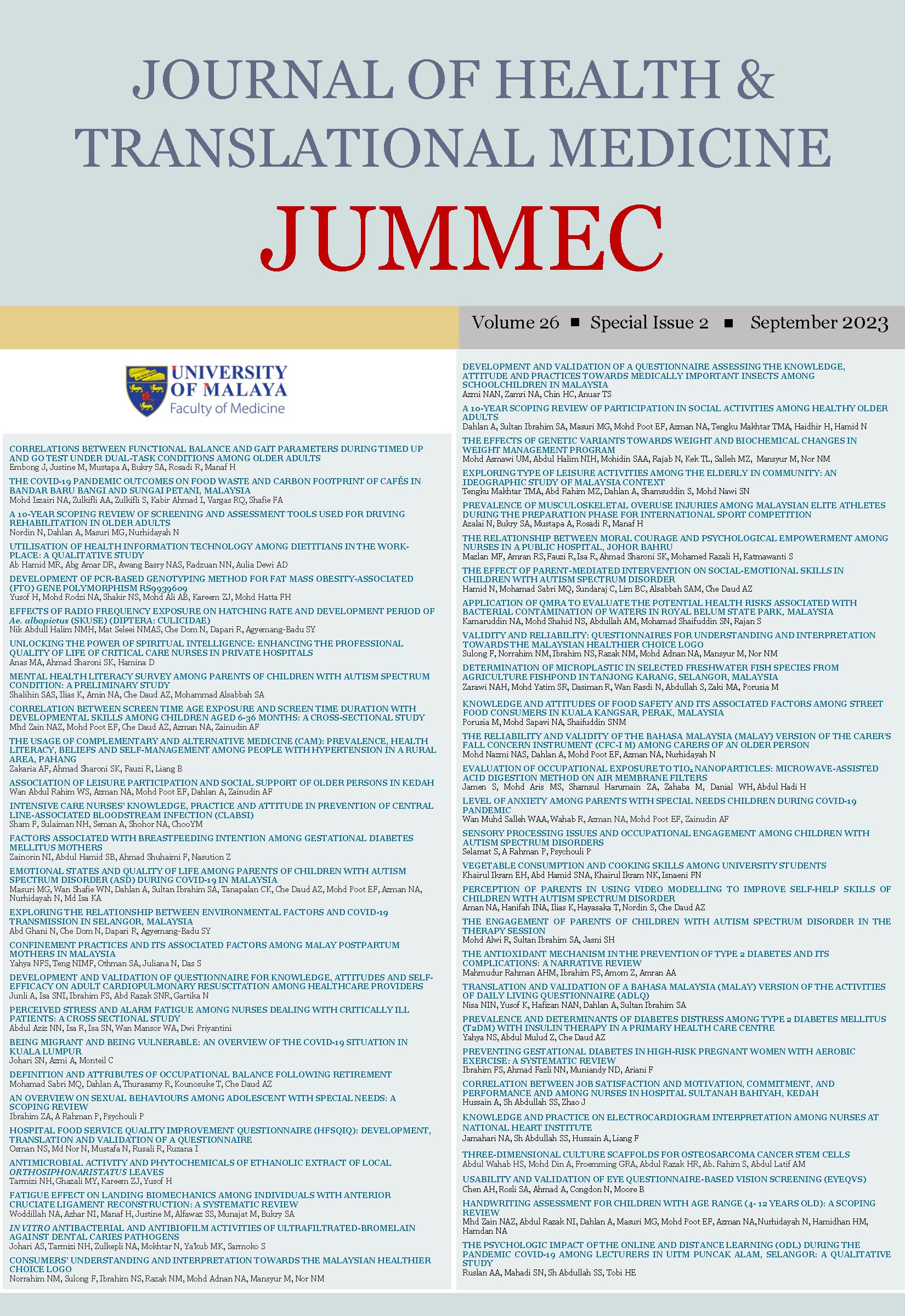VEGETABLE CONSUMPTION AND COOKING SKILLS AMONG UNIVERSITY STUDENTS
Received 2023-07-07; Accepted 2023-09-18; Published 2023-09-18
DOI:
https://doi.org/10.22452/jummec.sp2023no2.42Abstract
A high vegetable diet has proved to offer health benefits that can lower blood pressure, reduce the risk of heart
disease and stroke, prevent some types of cancer, lower the risk of eye and digestive problems, and have a positive
effect on blood sugar, which can help control appetite. However, the prevalence of vegetable consumption below
the recommended daily intake is worrying. Nearly 95% of Malaysian adults, including university students, have
not met the recommended daily amount of vegetables. Sociodemographic factors and a lack of cooking skills may
contribute to inadequate vegetable consumption. A study was carried out to determine the relationship between
sociodemographic characteristics and cooking skills with vegetable consumption among Malaysian university
students. By utilizing a random sample, a cross-sectional study was conducted to evaluate the frequency of vegetable consumption and cooking skill among university students aged 18 and older. The data was obtained via online survey using the Food Frequency Questionnaire (FFQ) and the Cooking Skills Questionnaire validated and tested by previous researchers. Vegetable consumption was divided into daily and non-daily consumption and a chi-square test was performed to analyze the association followed by the Bonferroni posthoc test. The association between sociodemographic and five dimensions of cooking skills with daily vegetable consumption was subject to logistic regression and an adjusted odds ratio was applied. Results demonstrated that only 24% of students (20% of males and 52% of females) consumed vegetables regularly, while the rest did not. There is a positive association between cooking skills dimensions (availability and accessibility of fruits and vegetables; produce consumption self-efficacy and knowledge of cooking terms and techniques) with daily vegetable consumption. Students who were 25 years old and older, male, lived alone, with friends, or with children, understand how to cook, ordered outside during lunchtime, and dined at the cafeteria for lunch were significantly associated with daily vegetable consumption.
Downloads
Downloads
Published
Issue
Section
License
All authors agree that the article, if editorially accepted for publication, shall be licensed under the Creative Commons Attribution License 4.0 to allow others to freely access, copy and use research provided the author is correctly attributed, unless otherwise stated. All articles are available online without charge or other barriers to access. However, anyone wishing to reproduce large quantities of an article (250+) should inform the publisher. Any opinion expressed in the articles are those of the authors and do not reflect that of the University of Malaya, 50603 Kuala Lumpur, Malaysia.


